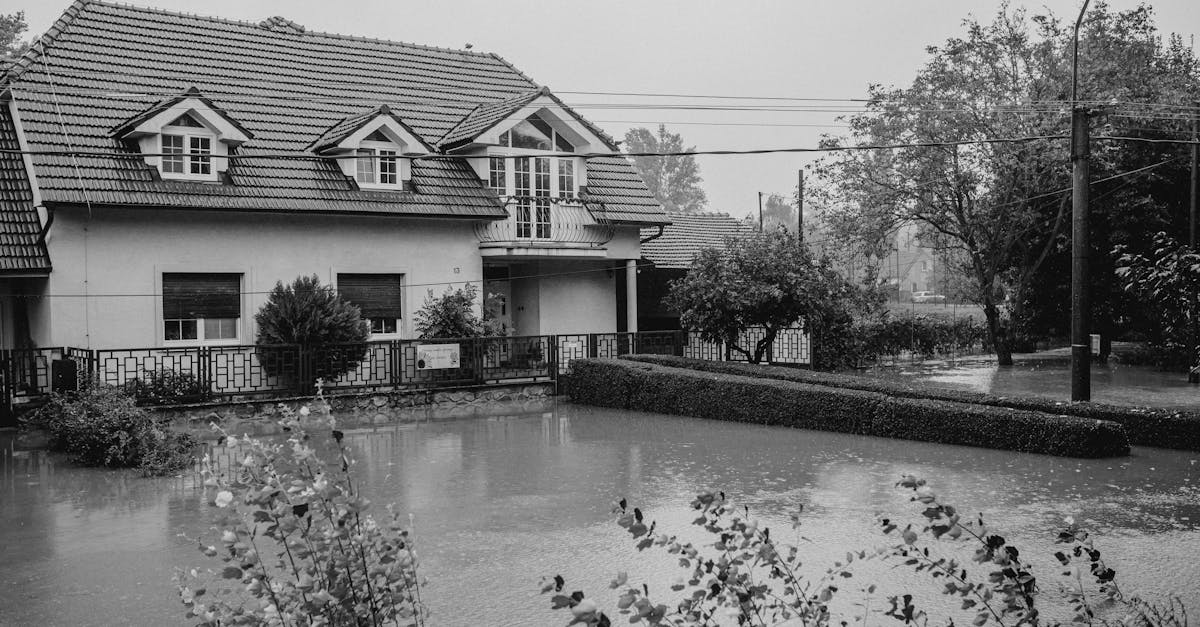House hacking can be a game changer for anyone looking to boost their income while living in their own home. Imagine turning your spare bedroom into a cash cow or renting out that basement that’s been collecting dust. But before diving headfirst into this money-making venture, it’s crucial to consider the risks involved. After all, nobody wants to turn their dream home into a nightmare scenario with rogue tenants or unexpected repairs.
In the world of house hacking, risk management isn’t just a buzzword; it’s your best friend. By understanding potential pitfalls and implementing smart strategies, anyone can protect their investment while enjoying the perks of extra income. So grab your favorite beverage, sit back, and let’s explore how to navigate the wild waters of house hacking without sinking your ship.
Table of Contents
ToggleUnderstanding House Hacking
House hacking refers to renting out a portion of a home to generate income. This strategy allows homeowners to cover mortgage payments, reduce living expenses, or even generate profit. Popular options include leasing a spare bedroom, converting a basement, or renting out an entire unit in a multi-family property.
Tenants can provide consistent cash flow, making property ownership more affordable. Rental income helps offset costs associated with ownership, such as utilities, maintenance, or renovations. Homeowners often find this strategy especially appealing in high-rent areas where additional income can significantly lighten financial burdens.
While benefits exist, risk management remains crucial. Unexpected repairs can arise, and problematic tenants may create financial strain. Conducting thorough background checks on prospective tenants helps mitigate issues. Setting clear rental agreements and having a solid selection process reduces the potential for conflicts. Defining boundaries and responsibilities in writing clarifies expectations, contributing to a smoother rental experience.
Legal considerations also factor into the house hacking equation. Local laws may impose restrictions on rental practices, requiring homeowners to familiarize themselves with regulations. Zoning laws or specific housing rules can dictate property use, making research vital before entering the rental market.
Ultimately, house hacking presents a unique opportunity for savvy homeowners. Generating income through rental properties requires strategic planning and proactive risk management. By understanding potential challenges, homeowners can navigate the house hacking landscape effectively.
Types of House Hacking
House hacking encompasses various approaches, primarily short-term rentals and long-term rentals. Each method has distinct advantages and considerations for effective management.
Short-Term Rentals
Short-term rentals present an opportunity for homeowners to capitalize on platforms like Airbnb or VRBO. This approach typically attracts vacationers or business travelers seeking temporary accommodations. Higher rental income often comes from shorter stays, especially in tourist areas. Concise communication with guests enhances guest experience and increases potential for positive reviews. Understanding local regulations regarding short-term rentals is essential to avoid potential fines. Property management and cleaning services can streamline operations, although they involve additional costs. Stability in occupancy can vary significantly, impacting income levels seasonally.
Long-Term Rentals
Long-term rentals provide homeowners with consistent cash flow through leases, generally spanning one year or more. This method fosters stable relationships with tenants, reducing turnover rates and associated costs. Rents tend to be lower compared to short-term options but offer greater reliability in income. Conducting thorough tenant screenings ensures suitable renters, which minimizes risks of non-payment or property damage. Regular maintenance is crucial for preserving property value, necessitating a structured plan. Landlords should remain informed about changes in local rental markets and laws to ensure compliance and competitive pricing.
Assessing Risks in House Hacking
Understanding risks is crucial for anyone considering house hacking. Identifying potential financial and operational challenges helps in making informed decisions.
Financial Risks
Financial risks encompass various factors that could impact profitability. Rent prices fluctuate, leading to unpredictable income. Unexpected repairs can drain savings quickly. Property taxes may increase, affecting affordability. Additionally, vacancy rates vary, meaning income might not be consistent. Conducting a thorough financial analysis aids in safeguarding against these risks.
Operational Risks
Operational risks arise from daily management tasks. Tenant issues, such as late payments or damages, create stress for landlords. Local regulations can complicate rental agreements. Maintaining the property requires regular inspections and timely repairs to attract quality tenants. Poor marketing strategies might result in prolonged vacancies. Developing effective management plans reduces operational risks and enhances tenant satisfaction.
Strategies for Effective Risk Management
Effective risk management in house hacking involves strategic planning and consistent execution. These strategies help homeowners minimize potential issues while maximizing financial rewards.
Conducting Thorough Market Research
Conducting thorough market research proves vital for successful house hacking. Homeowners should analyze local rental rates, vacancy trends, and tenant demographics. This information helps set competitive rental prices and target the right audience. Identifying nearby amenities and attractions can further enhance property appeal. Tools like Zillow, Redfin, or local real estate reports offer valuable insights and data for informed decisions.
Setting Clear Expectations with Tenants
Setting clear expectations with tenants significantly reduces misunderstandings. Clearly communicated rental terms and conditions establish groundwork for a harmonious relationship. Homeowners should outline responsibilities, rules, and payment schedules in rental agreements. Additionally, defining maintenance protocols and communication channels ensures prompt issue resolution. A well-structured agreement fosters transparency, encouraging tenants to uphold their obligations.
Regular Property Maintenance
Regular property maintenance plays a crucial role in risk management. Proactive maintenance prevents costly repairs and ensures tenant satisfaction. Scheduling routine inspections identifies potential issues before they escalate. Tasks such as gutter cleaning, HVAC servicing, and lawn care keep properties in optimal condition. Maintaining properties not only protects investment but also enhances tenant retention, contributing to stable income.
Legal Considerations
Understanding legal aspects is critical to successful house hacking. Compliance with zoning laws and regulations helps avoid fines and unnecessary disputes.
Zoning Laws and Regulations
Zoning laws dictate how properties can be used. These regulations vary by location and often determine if a homeowner can rent out part of their home. Specific zones may limit short-term rentals or require permits. Failing to comply can lead to penalties or forced removal of tenants. Engaging with local housing authorities provides insights into applicable rules. Researching zoning classifications ensures that house hacking efforts remain within legal boundaries.
Lease Agreements and Tenant Rights
A solid lease agreement clarifies the terms of rental arrangements. This document outlines responsibilities, including rent payment schedules and property upkeep. Clearly defined tenant rights protect both parties and help mitigate potential conflicts. Including essential clauses, such as termination policies, improves expectations. Familiarizing oneself with local tenant laws avoids legal complications and enhances tenant satisfaction. Documenting everything fosters transparency and builds a positive rental experience.
Conclusion
House hacking presents a valuable opportunity for homeowners to enhance their financial situation while managing living expenses. By implementing effective risk management strategies homeowners can navigate potential pitfalls and create a successful rental experience. Understanding the nuances of tenant relationships and local regulations is crucial for maintaining compliance and fostering a positive environment.
With careful planning and consistent execution homeowners can reap the rewards of house hacking while minimizing risks. By prioritizing tenant satisfaction and maintaining the property, they can ensure a steady income stream and long-term success in their investment journey.





